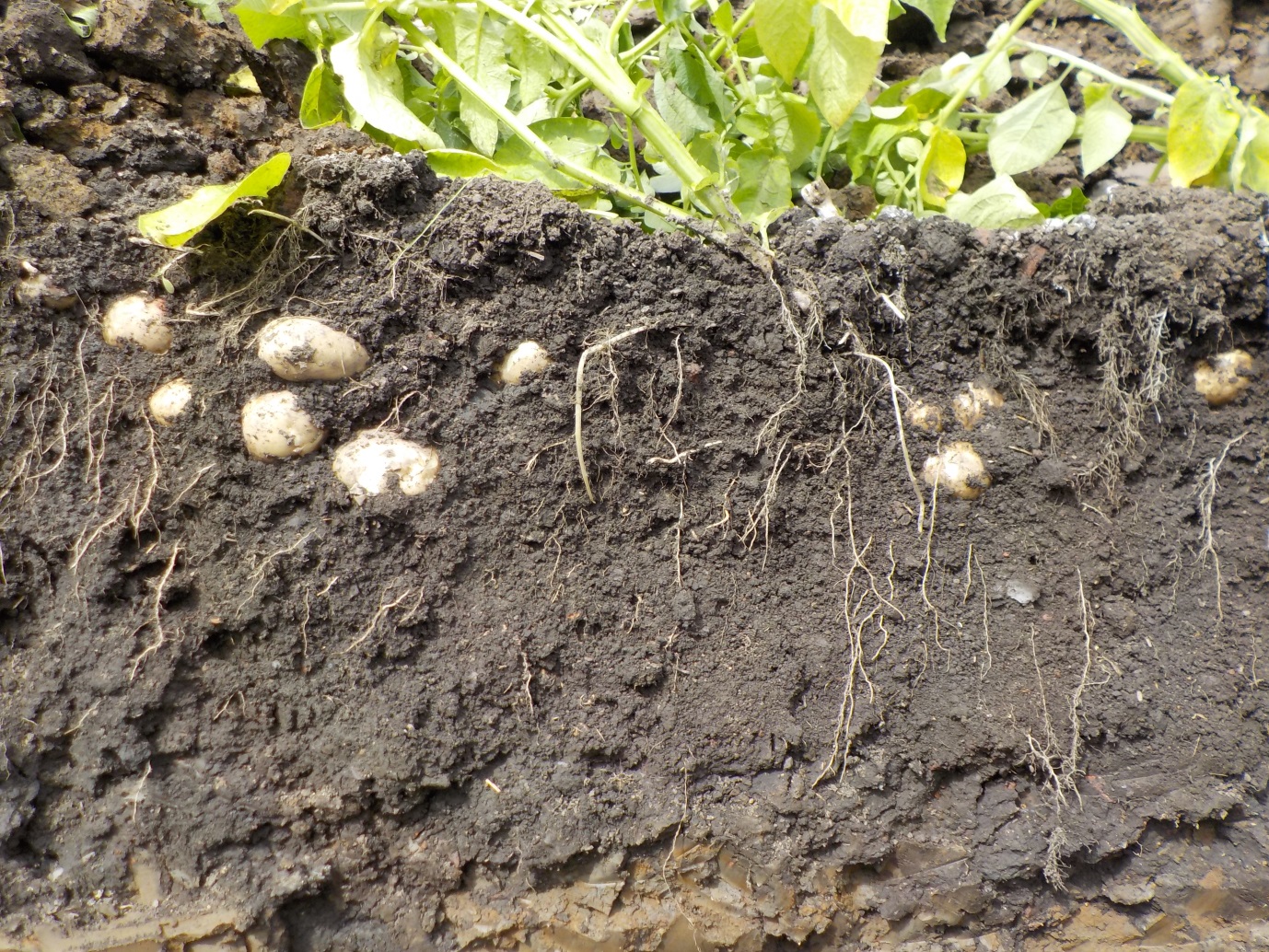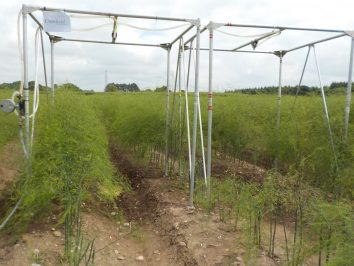Who cares about horticulture and potato production?
17/06/2016

My first venture into the blogosphere is driven by a desire to know whether the UK horticulture and potato food chain benefits from science. How important is it that we are able to grow horticultural and potato crops? And how capable are we of adapting to the challenges that could impact this production? If you care about these questions then I hope you will get involved in the comments section!
I have to admit that I’m not the obvious choice to be asking these questions. My day job is soil science and I’m happiest when out in the field with my trusted spade. While soil does play an important role in food production, in truth I am a physical geographer at heart and have a desire to understand the impact of human activity on the environment that supports our very existence. I want to better understand how we get people to consider the consequences of their actions and how we future-proof ourselves against the unknown?
My intention here is to help inform those involved with horticulture (that is, the branch of agriculture that deals with the art, science, technology and business of growing plants) and the commercial production of potatoes, about research that will be of interest to them, and to provide a sounding board to discuss ways in which the horticulture and potato industry and the research community can more effectively work together in a common cause.
 In a recent survey that I undertook of the horticulture and potato industry, the industry expressed a feeling that they had benefited from research and that it had helped them modify their practices in a beneficial way. However, it also revealed that the industry was less certain of research providing the answers that would be needed to meet future challenges such as climate change, feeding a growing population and providing alternative, safe, solutions to pest and disease control.
In a recent survey that I undertook of the horticulture and potato industry, the industry expressed a feeling that they had benefited from research and that it had helped them modify their practices in a beneficial way. However, it also revealed that the industry was less certain of research providing the answers that would be needed to meet future challenges such as climate change, feeding a growing population and providing alternative, safe, solutions to pest and disease control.
But who is responsible for the research and development necessary to meet these challenges? Certainly larger horticulture and potato companies often have the capability to do their own research. The perceived benefit to them of doing this is often expressed as the competitive advantages that it brings. On the other hand, a company collaborating with universities and research institutes benefits from the new perspective that can be the catalyst that evokes a step change in a product. Collaboration can also be used to train a pool of people who have the skills to benefit the sector and even become new employees for a company. But, there are potential drawbacks. Companies and researchers might have different perspectives on timescales for delivery, different demands on time and different agendas. Thankfully, I know from my work that the positives usually outweigh the negatives!
Outside of the larger companies, though, it has historically seemed that the opportunities for research and development (R&D) have been in decline because of a lack of funding and a dwindling population with the skills necessary to undertake it. Ten years ago a review on behalf of the National Horticultural Forum, ‘A Case Study Analysis and Overview of the UK Horticultural Production Industry and its Future over the Next 10-20 Years’, suggested that “in order to benefit from long term market opportunities, producers will benefit from ongoing investment in technology” and “incremental change can prove more effective than holding out for life-altering technology, but will require a distinct culture of innovation to be developed within companies and key stakeholder organisations”.
In 2013, the Horticulture Innovation Partnership (HIP) was established following a series of round table discussions led by the then Government Chief Scientific Adviser, Sir John Beddington, on the future of UK horticulture. The HIP was established in order to drive engagement of the research and knowledge community with the horticulture and potato supply chain so as to foster innovation. The HIP was also established to help re-focus R&D funding towards industry priorities. In its role as lead coordinator of the Horticulture and Potato Initiative (HAPI), the HIP has seen a £7M investment in industry focused research.
This is one example of an improving R&D funding landscape for the horticulture and potato industry and it is generating some interesting research that will be worth considering here in these blogs.
Categories & Tags:
Leave a comment on this post:
You might also like…
Introducing… Bloomberg Trade Flows
Are you interested in world trade flows? Would it be useful to know which nations are your country's major trading partners? If so, the Bloomberg terminal has a rather nifty function where you can view ...
Cranfield alumni voyage to the International Space Station
Seeing our alumni reach the International Space Station (ISS) has a ripple effect that extends far beyond the space sector. For school students questioning whether science is “for them”, for undergraduates weighing their next ...
From classroom to cockpit: What’s next after Cranfield
The Air Transport Management MSc isn’t just about learning theory — it’s about preparing for a career in the aviation industry. Adit shares his dream job, insights from classmates, and advice for prospective students. ...
Setting up a shared group folder in a reference manager
Many of our students are now busy working on their group projects. One easy way to share references amongst a group is to set up group folders in a reference manager like Mendeley or Zotero. ...
Company codes – CUSIP, SEDOL, ISIN…. What do they mean and how can you use them in our Library resources?
As you use our many finance resources, you will probably notice unique company identifiers which may be codes or symbols. It is worth spending some time getting to know what these are and which resources ...
Supporting careers in defence through specialist education
As a materials engineer by background, I have always been drawn to fields where technical expertise directly shapes real‑world outcomes. Few sectors exemplify this better than defence. Engineering careers in defence sit at the ...






